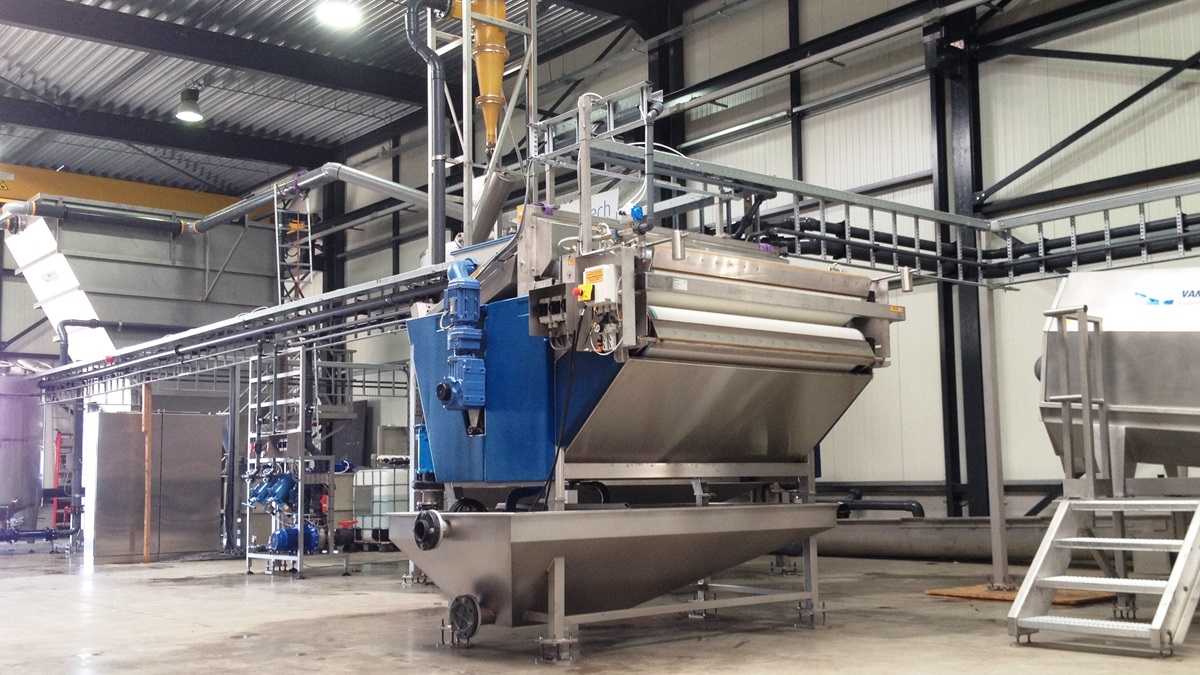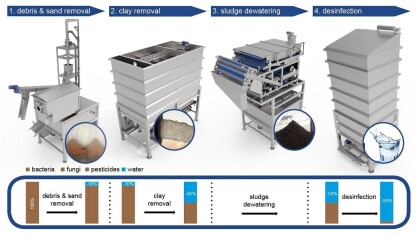Conditioning
Clean water in the flower bulb industry
When flower bulbs are harvested, a large amount of soil is still attached. When this soil is washed off, fungi, viruses and pesticide residue get into the water. Cleansing wash water of pesticides, fungi and viruses leads a reduction in the use of plant protection products, lower impact on the environment and improved yield. In short, clean water helps tackle the challenges facing the bulb sector. However, using clean water every time a harvest comes in entails high costs and places a burden on the environment. This is less than desirable for the bulb sector, where cost and a ?green? image are important competitive advantages.
30 January, 2023
When flower bulbs are harvested, a large amount of soil is still attached. When this soil is washed off, fungi, viruses and pesticide residue get into the water. Cleansing wash water of pesticides, fungi and viruses leads a reduction in the use of plant protection products, lower impact on the environment and improved yield. In short, clean water helps tackle the challenges facing the bulb sector. However, using clean water every time a harvest comes in entails high costs and places a burden on the environment. This is less than desirable for the bulb sector, where cost and a green image are important competitive advantages. The post A solution for clean water in the flower bulb sector in Vam Watertech blog explains the challenges faced by the Dutch flower bulb industry, and elsewhere due the environmental and sustainability concerns of the society. For the project called Duurzame Waterkwaliteit (Sustainable Water Quality) VAM WaterTech has delivered an installation that treats and disinfects a bulb growers field water and wash water, so that it can be reused in the rinsing process, or for spraying fields or cleaning machines.The purification process consists of several steps: first, sand is removed with the current basin or with a cyclone installation. Remaining soil particles are removed next, and the cleaned water is disinfected. The water is cleared of fungi, viruses and pesticide residues. This approach helps reduce diseases, which in turn results in reduced use of plant protection products and more options for water use, in the washing process and on site. In this way, VAM WaterTech is also making a contribution to a healthy and clean bulb cultivation. ACCESS to the post A solution for clean water in the flower bulb sectorPicture by Granjas de tulipanes: el cultivo intensivo de bulbos en Holanda
https://youtu.be/gtQWm4oSVyU











